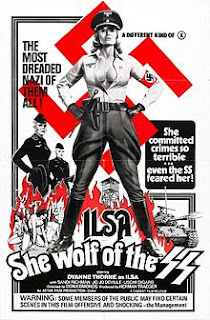Leiden Seminar in Law, Literature,
Rhetoric,
Fall Semester 2015.
“Cybernetic Personhood in Law, Cinema and Politics”
Convened by: Yasco Horsman, Frans-Willem Korsten,
Tessa de Zeeuw
(LUCAS, Leiden University)

This term’s seminar focuses
on a new type of actor that is playing a growing role in the political and
military conflicts of our contemporary world: namely, machines operated by
algorithms – or software – that are programmed to make independent decisions
and to act on those decisions. The emergence and increasing prominence of
machines that can make semi-autonomous decisions pose problems for
international, military and human rights law. It can be difficult to know whom
to hold accountable when innocent civilians are killed by drones, in situations
where it is unclear whether the decision to strike was made by a person, a
machine, or some hybrid of the two. It may even be an open question whether key
legal concepts of accountability, liability, and responsibility, and the moral
and legal framework to which they belong, can still be used in situations when
warfare or security operations is partly automated. In particular the so-called ‘signature
strikes’ performed by drones, in which computerized data analytics are used to
reveal and assassinate potentially dangerous individuals, have prompted a
series of legal, moral and political debates, which are politically urgent and theoretically complex.
In our seminar we will read
contemporary philosophical, political and legal texts about the rise of ‘cybernetic
personhood’ in juxtaposition to representations of code and algorithms in
mainstream Hollywood cinema in order to understand the fears, fantasies and fascinations
that underlie the legal and political debates about the relations between law
and technology, and the challenges to representation and understanding that
code poses.
Dates:
Tuesday October 27nd, 15 –
17:00
Tuesday November 17th,
15-17:00
Tuesday December 1st,
15-17:00
Venue: HUIZINGA 27 (Doelensteeg 16), Leiden.
Blog: http://rechtbankdrama.blogspot.co.uk
Session 1 (27/10): Algorithms
& Law
READING: Mireille
Hildebrandt, Smart Technologies and the
End(s) of Law. Novel Entanglements of
Law and Technology. Cheltenham: E&E, 2015. (Excerpts); Gunther Teubner,
“Electronic Agents and Animals as New Actors in Politics and Law.” In Journal of Law & Society, vol. 33,
no. 4 (2006). 497-521. Available here.
FILM: Transcendence (Pfister, 2014)
Session 2 ( 17/11): Drones,
Manhunting & Signature Strikes
READING: Susan Schuppli,
“Deadly Algorithms.” In Radical
Philosophy, no 187 (2014). Available here; Gregoire Chamayou, “The Manhunt Doctrine.” In Radical Philosophy, no. 169 (2011). Available here; Gregoire Chamayou, Drone Theory. London & New York: Penguin, 2015. Excerpts.
FILM: The Good Kill (Niccol, 2014)
Session 3: (1/12) Code,
Protocol, Power, Control
READING: Alexander Galloway, "Protocol: How Control Exists after
Decentralization."Rethinking Marxism, Vol. 13, no. 3/4 (2001). 81-86. Available here; Gilles Deleuze, “Postscript on Societies of
Control.” In October, vol 59 (1992).
3-7. Available here; The Invisible Committee, “Fuck off, Google!” To Our Friends. Cambridge, Ma: MIT Press, 2015. Available here.
FILM: Blackhat (Mann, 2015)


















